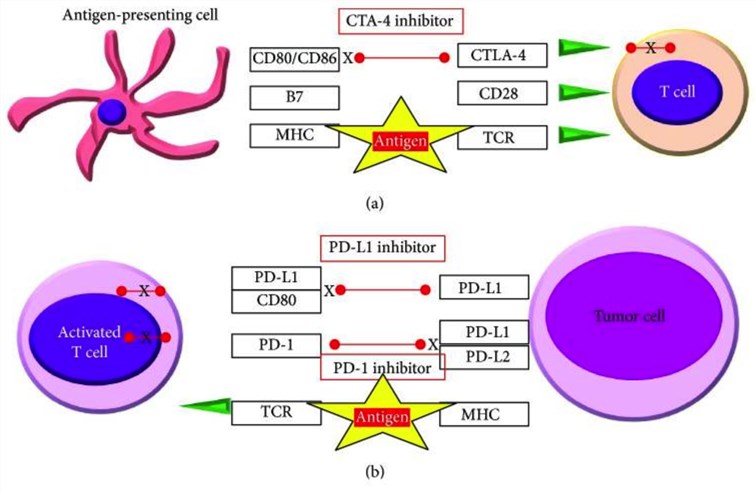Lymphoma is a cancer of the lymphatic system that leads to lymphocytes change and grow out of control. There are two main types of lymphoma, including Non-Hodgkin lymphatic and Hodgkin lymphatic. It starts in infection-fighting lymphocytes; they involve different types of lymphocyte cells and respond differently to a treatment. Immunotherapy with monoclonal antibodies presents great potentials for lymphoma treatment.
In recent years, immune checkpoint blockade (ICB) gained significant success for various tumors treatment. The current clinical trials have shown that ICB is specific for classical Hodgkin lymphoma (cHL) and primary mediastinal B-cell lymphoma. As for follicular lymphoma and diffuse large B-cell lymphoma, ICB presents disappointing results. In lymphomas, we have noticed the importance of the immune environment for the regulation of ICB efficacy. For example, classical Hodgkin lymphoma is characterized by an inflammatory environment, which results in improved sensitivity to PD-1 blockade therapy.
Conversely, the lack of immune surveillance measures in follicular lymphoma and most diffuse large B-cell lymphomas results in poor anti-PD-1 therapy. In this case, we distinguish "inflamed" from "noninflamed" lymphomas for better efficacy. The major feature of inflamed lymphomas is recurrent genetic alterations that drive PD-L1 upregulation and further facilitate immune escape.
 Fig.1. Interactions between activated T lymphocytes and tumor by the CTLA-4 (a) and the PD-1 pathway (b).1,2
Fig.1. Interactions between activated T lymphocytes and tumor by the CTLA-4 (a) and the PD-1 pathway (b).1,2
Two antibodies that target PD-1 showed high overall response rates (ORR) in relapsed/refractory (r/r) cHL patients. In primary mediastinal large B-cell lymphoma (PMBL), the antibody-based PD-1 blockade therapy has also yielded excellent results, with an overall risk ratio (ORR) of 48%. Besides, anti-PD-1 therapy has also demonstrated impressive activity in a small proportion of patients with r/r primary central nervous system lymphoma (PCNSL) and primary testicular lymphoma (PTL). In the future, it is also necessary to find immune checkpoints outsides of PD-1/PD-L1 for better efficacy in early lines of lymphoma treatment.
Creative Biolabs is a leading service provider that focuses on immune checkpoint therapy against lymphoma. Based on our advanced drug discovery platform and extensive experience, now we can provide a series of services for our clients all over the world, which include but not limited to:
If you are interested in our services, please do not hesitate to contact us for more detailed information.
References
All listed customized services & products are for research use only, not intended for pharmaceutical, diagnostic, therapeutic, or any in vivo human use.
USA
Tel:
Fax:
Email:
Copyright © 2026 Creative Biolabs. All Rights Reserved.